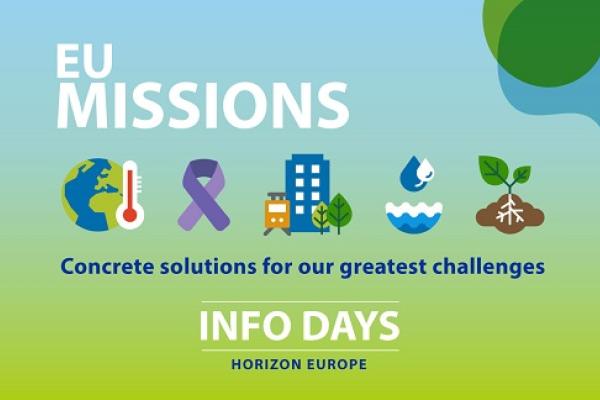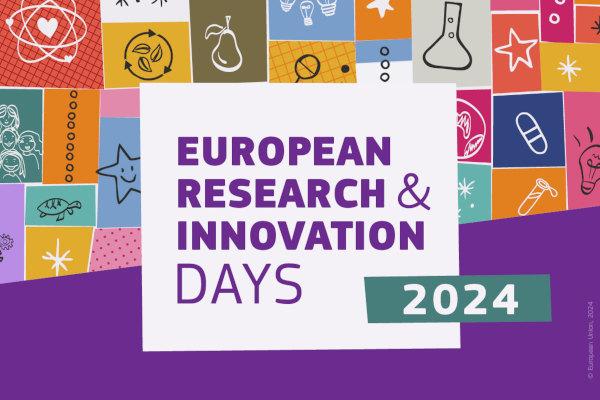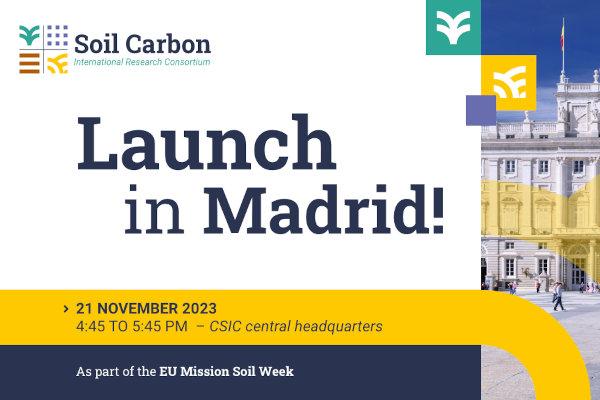What this EU Mission deals with
The main goal of the Mission 'A Soil Deal for Europe' is to establish 100 living labs and lighthouses to lead the transition towards healthy soils by 2030.
Life on Earth depends on healthy soils. Soil is the foundation of our food systems. It provides clean water and habitats for biodiversity while contributing to climate resilience. It supports our cultural heritage and landscapes and is the basis of our economy and prosperity.
However, it is estimated that between 60 and 70% of EU soils are unhealthy. Soil is a fragile resource that needs to be carefully managed and safeguarded for future generations. One centimetre of soil can take hundreds of years to form, but can be lost in just a single rainstorm or industrial incident.
The Mission leads the transition towards healthy soils by
- funding an ambitious research and innovation programme with a strong social science component
- putting in place an effective network of 100 living labs and lighthouses to co-create knowledge, test solutions and demonstrate their value in real-life conditions
- developing a harmonised framework for soil monitoring in Europe
- raising people’s awareness on the vital importance of soils
The 8 Mission objectives
- reduce desertification
- conserve soil organic carbon stocks
- stop soil sealing and increase re-use of urban soils
- reduce soil pollution and enhance restoration
- prevent erosion
- improve soil structure to enhance soil biodiversity
- reduce the EU global footprint on soils
- improve soil literacy in society
The Mission will support the EU’s ambition to lead on global commitments, notably the Sustainable Development Goals (SDGs), and contribute to the European Green Deal targets on sustainable farming, climate resilience ,biodiversity and zero-pollution. It is also a flagship initiative of the long-term vision for rural areas.
To know more about how the Mission will achieve its goal, read the Mission implementation plan.
Mission living labs and lighthouses
Living labs are places where to experiment on the ground. Soil health living labs will be partnerships between multiple partners and different actors, like researchers, farmers, foresters, spatial planners, land managers, and citizens who come together to co-create innovations for a jointly agreed objective. Living Labs will be established at territorial, landscape or regional scale, with several experimental sites covered underneath.
This is an innovative way to do research and innovation: in a Living Lab, experimentations happen in real-life conditions, operating with end-users i.e. commercial farms or forest exploitations, real urban green parks or industrial sites, and other actors such as NGOs or local authorities. This is key to make sure that research and innovation find solutions to societal challenges and challenges that land managers face on the ground.
Lighthouses are single sites, like a farm or a park, where to showcase good practices. These are places for demonstration and peer-to-peer learning. Here good practices are tested or in place and can be showed to inspire other practitioners to move towards sustainable land management. In addition, in lighthouse sites, researchers work together with land managers to ensure that research responds to concrete needs encountered in the field.
Mission Soil platform website
In the Mission Soil platform website you find:
- information about Mission Soil and the opportunities to engage in its activities
- the Mission projects, funding opportunities, news, and events
- a contact point and helpdesk to reply to requests for information on the Mission and its activities
Mission Soil Manifesto
We are calling on regions, municipalities, private or public companies, organisations, associations, schools, educational institutes, universities, research institutions and a wide range of stakeholders as well as individuals to sign the Mission Soil Manifesto and become part of a community that cares for soil.
Please click below to sign the Mission Soil Manifesto
Funding opportunities
New funding opportunities are open to contribute to the Mission Soil.
There are 9 different topics open for the submission of proposals. The projects are called to work on soil erosion, nitrogen fluxes, soil health and pollinators, soil biodiversity, healthy crops, carbon farming, and forest peatsoils. Moreover, new funding opportunities are available to establish Living Labs, and to cooperate for soil health in Africa.
The Horizon Europe Work Programme 2024 - EU Missions is published.
Calls for applications are open from 8 May until 8 October 2024.
What are EU Missions?
EU Missions are a new way to bring concrete solutions to some of our greatest challenges. They have ambitious goals and will deliver tangible results by 2030.
They will deliver impact by putting research and innovation into a new role, combined with new forms of governance and collaboration, as well as by engaging citizens.
EU Missions are a novelty of the Horizon Europe research and innovation programme for the years 2021-2027.
Let's play
- 14 APRIL 2020
- 14 APRIL 2020
Contact
Mission Soil Secretariat: EU-HORIZON-MISSION-SOIL ec [dot] europa [dot] eu (EU-HORIZON-MISSION-SOIL[at]ec[dot]europa[dot]eu)
ec [dot] europa [dot] eu (EU-HORIZON-MISSION-SOIL[at]ec[dot]europa[dot]eu)
Helpdesk Mission Soil Platform: info mission-soil-platform [dot] eu (info[at]mission-soil-platform[dot]eu)
mission-soil-platform [dot] eu (info[at]mission-soil-platform[dot]eu)
Newsletter
Do you want to receive the latest news about the Mission Soil? Subscribe to the Mission Soil newsletter.
Video and interactive
- co-design session on mission area soil health and food at Research and Innovation Days 2019
- handover of the EU Missions final reports at the Research and Innovation Days 2020
- citizen engagement session at the Research and Innovation Days 2020
- The Mission Soil, the CAP and carbon farming
- Soil health and food
- Soil matters
- Mission Soil Panorama
- Horizon magazine: Bringing Europe’s soils back to life
Documents

- Factsheet
- 13 November 2024
The Mission 'A Soil Deal for Europe' will support the transition towards healthy soils by 2030 by putting in place an effective network of 100 living labs and lighthouses in rural and urban areas.

- Factsheet
- 23 July 2023
Together with the Soil Strategy, the upcoming Soil Health Law, the European Soil Observatory and climate policies (such as for carbon farming) the Mission is part of a robust framework for soil protection in the EU.
- 19 JULY 2023
- 3 MAY 2023
- 5 DECEMBER 2022
- 13 DECEMBER 2021
- 21 OCTOBER 2021
- 29 SEPTEMBER 2021
- 29 SEPTEMBER 2021
- 27 SEPTEMBER 2021
- 7 SEPTEMBER 2020
- български(612.68 KB - PDF)
- español(476.65 KB - PDF)
- čeština(832.19 KB - PDF)
- dansk(606.45 KB - PDF)
- Deutsch(576.77 KB - PDF)
- eesti(563.21 KB - PDF)
- ελληνικά(739.16 KB - PDF)
- français(740.73 KB - PDF)
- hrvatski(770.06 KB - PDF)
- italiano(495.38 KB - PDF)
- latviešu(670.61 KB - PDF)
- lietuvių(711.1 KB - PDF)
- magyar(673.09 KB - PDF)
- Malti(680.47 KB - PDF)
- Nederlands(592.25 KB - PDF)
- polski(715.46 KB - PDF)
- português(349.25 KB - PDF)
- română(667.21 KB - PDF)
- slovenčina(717.93 KB - PDF)
- slovenščina(661.98 KB - PDF)
- suomi(650.68 KB - PDF)
- svenska(632.38 KB - PDF)
- 25 JUNE 2020
Latest
- News article
Thirty-three projects selected under three calls of Horizon Europe Missions have signed their grant agreements with the European Climate, Infrastructure and Environment Executive Agency (CINEA).
- 1 min read
- News article
The info days dedicated to the five EU Missions under Horizon Europe will be held online on 25 and 26 April 2024.
- 1 min read
Events

- Info days
- Thursday 25 April 2024, 09:00 - Friday 26 April 2024, 17:00 (CEST)
- Online only
- Live streaming available

- Conferences and summits
- Wednesday 20 March 2024, 14:00 - Thursday 21 March 2024, 18:00 (CET)
- Brussels, Belgium
- Live streaming available

- Conferences and summits
- Tuesday 21 November 2023, 16:45 - 17:45 (CET)
- Madrid, Spain
Related links
Support at least 150 European regions and communities towards climate resilience by 2030
improving the lives of more than 3 million people by 2030 through prevention, cure and for those affected by cancer including their families, to live longer and better
The Mission will help achieve the marine and freshwater targets of the European Green Deal
Deliver 100 climate-neutral and smart cities by 2030 and ensure that these cities act as experimentation and innovation hubs to enable all European cities to follow suit by 2050

